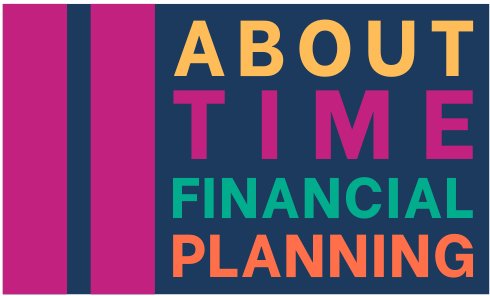Are you searching for a financial planner and wondering what to look out for? Do you have a financial advisor and are wondering if they’re really right for you? Here are three financial planner red flags and how to avoid them.
Financial Planner Red Flag #1: They’re not a fiduciary
Being a fiduciary means that the advisor is legally obligated to act in your best interest. You’d think that would be a requirement for anyone giving you financial advice, right? Yeah, me too. Well, turns out it’s not. So you could be getting advice that’s suitable, but not optimal for you. This might happen if, for example, your financial advisor is incentivized to invest your money in one of their company’s pricey investment funds or hook you up with an annuity or life insurance policy that pays the advisor high commissions but isn’t the best option for you.
How can you know that a financial advisor is a fiduciary?
This can be unnecessarily tricky – a former colleague of mine told me that when he worked at a big financial institution (and was not held to a fiduciary standard), they told him to just say “yes” when a prospective client asked if he was a fiduciary. So, I guess you can’t just take people’s word for it, which is disgusting.
There are a lot of nuances to it too – some financial advisors are required to act in your best interest when giving advice on retirement plans, but when they take off their figurative advisor hat and put on their broker hat to invest your money, they’re no longer held to the fiduciary standard.
The key is that you’re looking for someone who is a fiduciary at all times.
The following organizations require members to sign a Fiduciary Oath. This certifies that they will always act in their clients’ best interests, so they’re a great place to start: XY Planning Network (XYPN) and National Association of Personal Financial Advisors (NAPFA). To be listed on their Find an Advisor platforms, advisors also need to hold the CFP® designation, which means they’ve passed comprehensive education, exam, experience and ethics requirements.
As important as the fiduciary standard is, I honestly don’t think it’s enough. To truly find a financial advisor aligned with your best interests, I recommend focusing on avoiding this next red flag.

Financial Planner Red Flag #2: They’re paid to sell you something or it’s unclear all the ways they’re paid
Anyone can call themselves a financial advisor. There are no certifications required and no regulations on the use of that title. Some “financial advisors” are primarily insurance sales agents. Some are primarily investment managers. While they might run projections to see if you’re on track for retirement or saving enough for college, their primary focus is to sell you an insurance product or manage your assets, for which they’ll likely receive a commission.
Financial advisors like this are often called Fee-Based, which means they get paid a fee to build your financial plan in addition to commissions or other fees for selling investment or insurance products. And though they’re required to disclose all the ways they are paid, it’s usually buried deep in their disclosure documents and not at all transparent.
Fee-ONLY financial advisors are different. The only compensation they receive is what clients pay them directly for their advice. They receive no referral fees or commissions from the sale of insurance or investment products. And fee-only advisors are also fiduciaries, so you satisfy both targets at once.
Why is it important to look for a fee-only financial planner?
Two reasons: transparency and alignment. With fee-only financial advisors, you’ll know exactly how they’re paid. It might be a flat fee or a percentage of your assets, but there won’t be any commissions, referral fees or kickbacks hidden in the fine print. And if you want to rest assured that the person giving you financial guidance is not also incentivized by hefty sales commissions, fee-only is the way to go.
How can you find a fee-only financial planner?
Well, if they work for one of the big traditional firms – many of which have two names that sound like old white dudes – they’re not fee-only. Some of the same groups mentioned above that require members to sign a Fiduciary Oath are also exclusively composed of fee-only financial planners. I recommend using the Find an Advisor page on XYPN and NAPFA, as well as the Fee-Only Network. If you’re open to working with a virtual planner, the XYPN search tool is the most robust, as it lets you search by all kinds of focus areas that may be more important to you than location. This ties into our third red flag.

Financial Planner Red Flag #3: They’re not aligned with your needs
One of the most important things to look for in a financial advisor is someone in tune with your needs – someone who gets you, someone you trust. Money is extremely personal; we have a lot of emotions wrapped up in our money habits and it can feel vulnerable to share something as deep as our money truths with another person, especially an expert who we worry might judge us.
Financial advising might seem like a numbers game to most people…
But the best financial advisors understand that money is simply a tool that we can use to live our best lives. They understand that, in order to truly help you build a financial plan, they need to understand what’s most important to you. They create a safe space for you to talk about money and bring your whole, authentic self.
I can’t tell you the number of people who have come to me saying that that, when they’ve asked about sustainable and impact investing, their prior advisor tried to talk them out of it or put their money in some random climate fund just to check a box. And there’s equally as many who have told me that they felt like they didn’t have enough money to be worth their prior advisor’s time – that their financial advisor wasn’t proactive, didn’t really know them, and they only heard from him once a year.
There are many financial planners now, especially in the fee-only space, who focus on a particular clientele. That’s great, because you’ll know they understand people like you and cater to your needs. If there’s a specific money topic you want to make sure they can help you with, like impact investing, student loans, or budgeting, ask them about it. Regardless of their expertise, look for them to create a warm, inviting space for you to feel comfortable talking about your money.
How can you find a financial planner who’s aligned with your needs?
Check out their website, find them on social media, hop on an intro call. If they’ve put energy into their web presence, you’ll have a good sense of what they’re like before you even meet them. And I bet, within the first fifteen minutes of an intro call you’ll know if this is someone you connect with. Trust your intuition. If you’ve made sure they’re a fee-only fiduciary, you’ve already avoided two of the red flags. This relationship piece is about listening to your heart, and that’s a smart money decision.

About the author
Kathryn Kubiak-Rizzone, CFP®, CSRIC®, is the founder of About Time Financial Planning, LLC, a fee-only financial planning firm on native Haudenosaunee land in Rochester, NY, serving clients virtually across the US. She helps early- and mid-career professionals and specializes in women physicians, small business owners, and LGBTQ+ families. At About Time, we give people an affirming space to talk about money and the support they need to make empowered money decisions so they can reach financial freedom and live their fullest lives.


